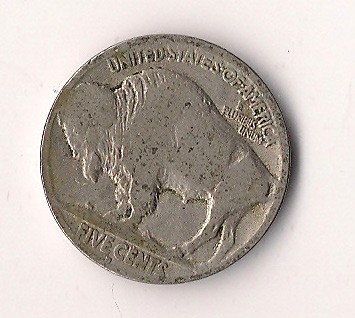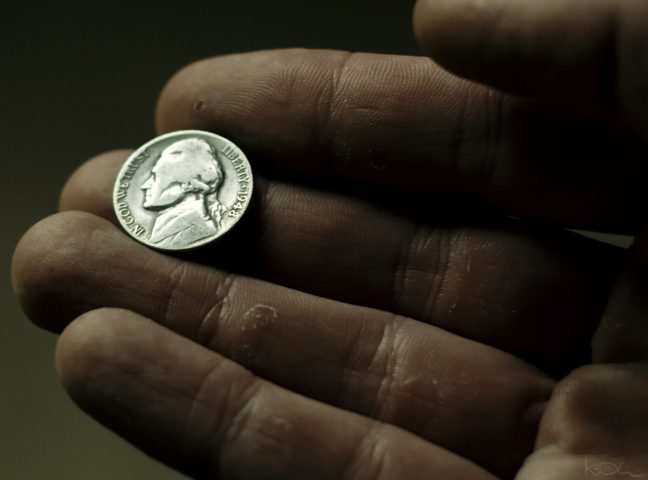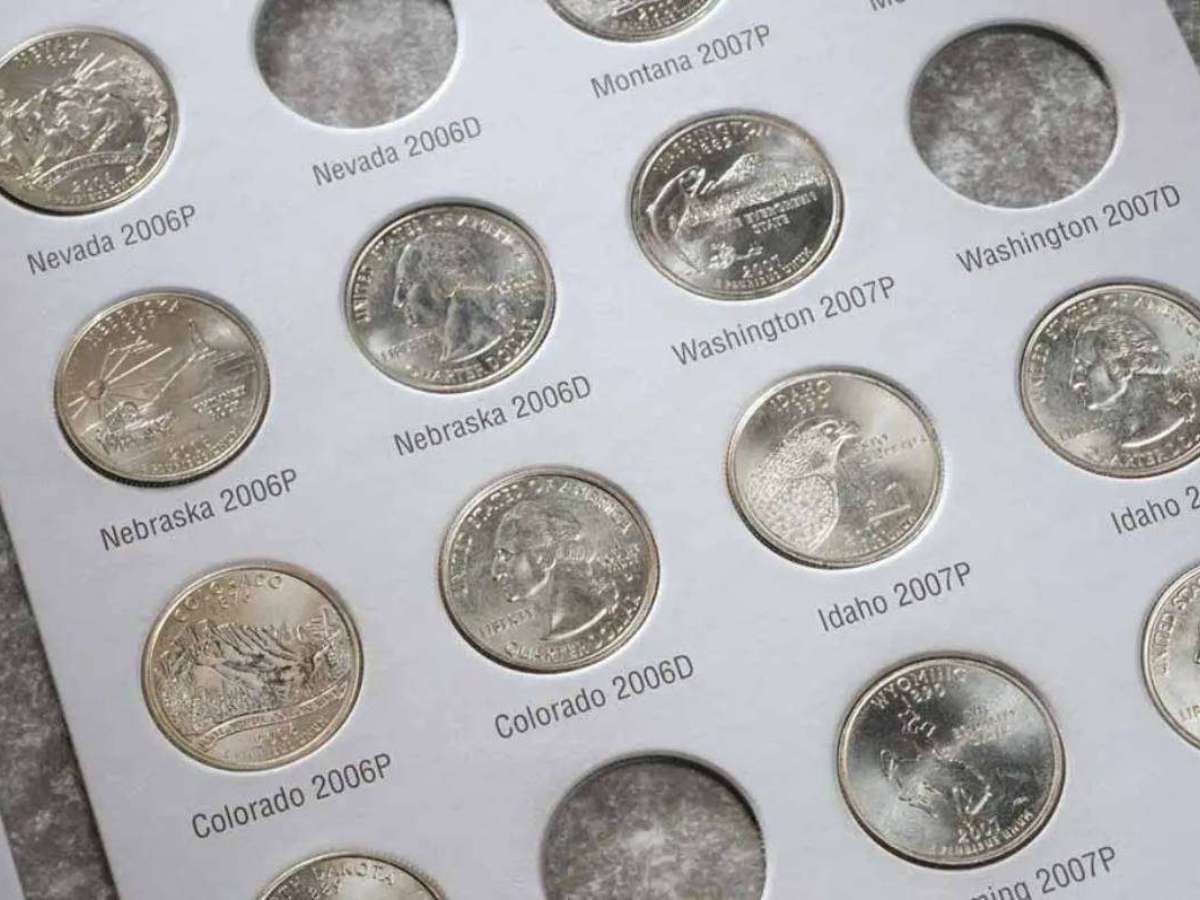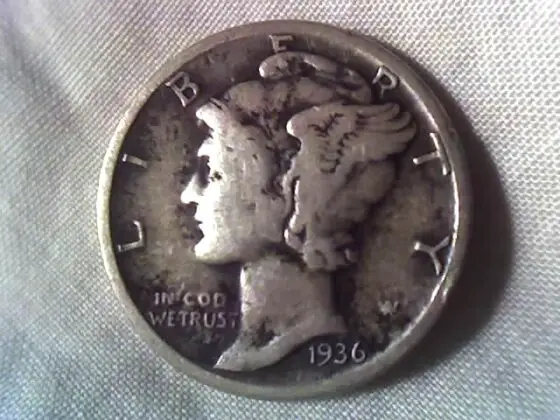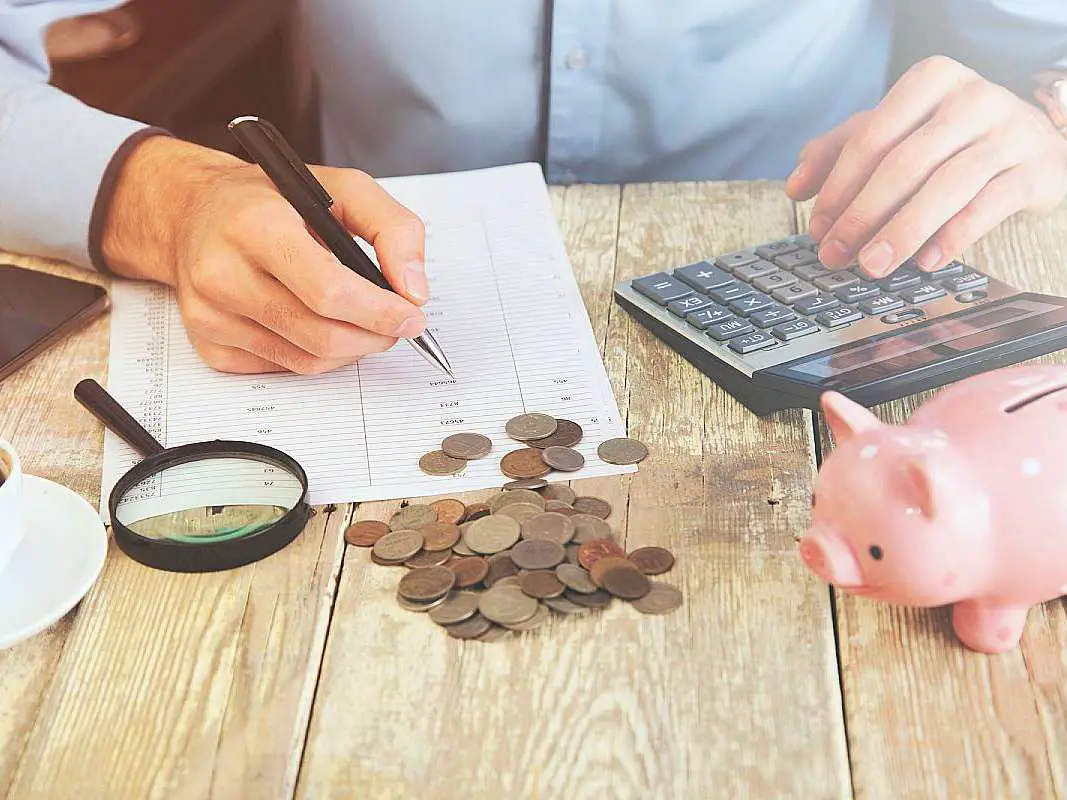I’m always on the prowl for old coins in my pocket change.
I’ve been rewarded with many interesting finds since I started looking for rare coins in my change from cash transactions, vending machines, and take-a-penny-leave-a-penny jars.
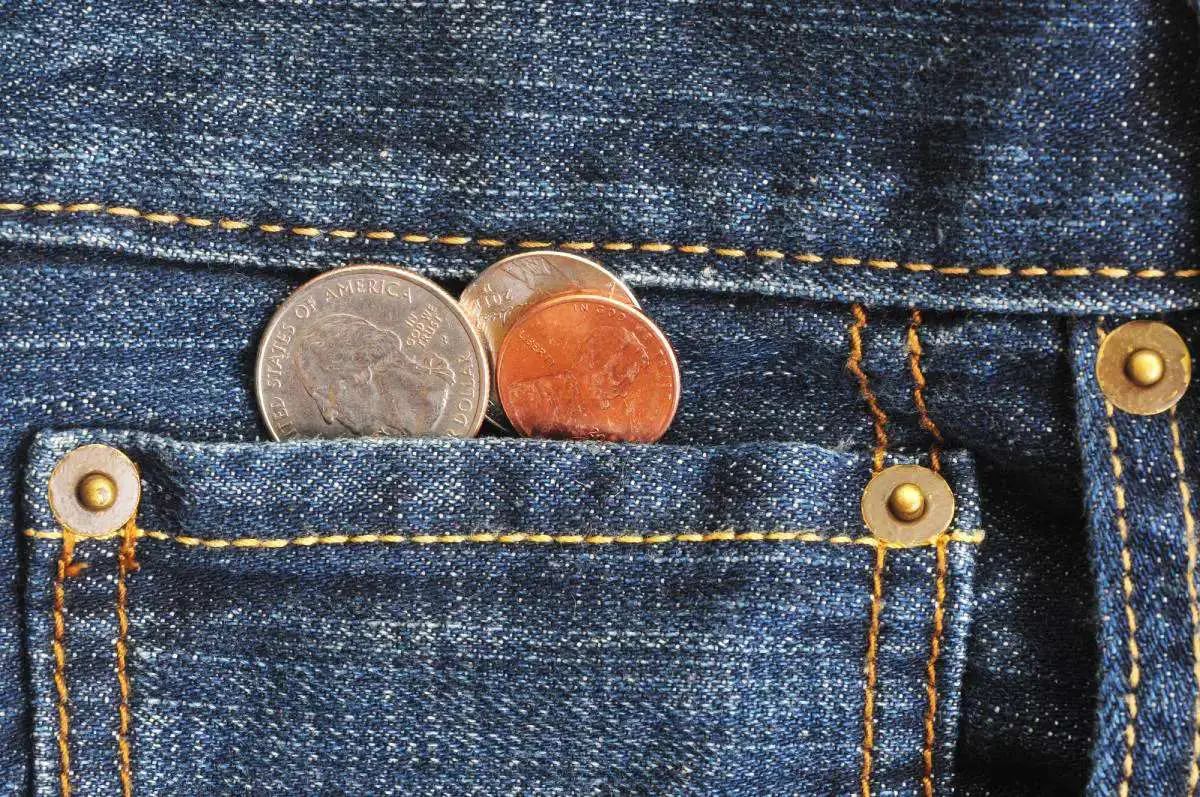
Of course, not every old coin I find is worth a lot of money — but it’s still neat to pluck vintage coins from circulation these days.
Here’s a rundown of the 5 types of old coins worth money that you can still find in spare change if you look hard enough …and you’re just a teensy bit lucky!
These aren’t necessarily super valuable coins, but they’re definitely worth keeping because they’re worth more than face value.
#1 – Old Lincoln Wheat Pennies
Lincoln wheat pennies, which were made from 1909 through 1958, can still be found in circulation — although they are becoming scarcer and scarcer in pocket change with each passing day.
Among the wheaties I’ve found most commonly are the 1944 penny, 1945 penny, and 1957 penny.
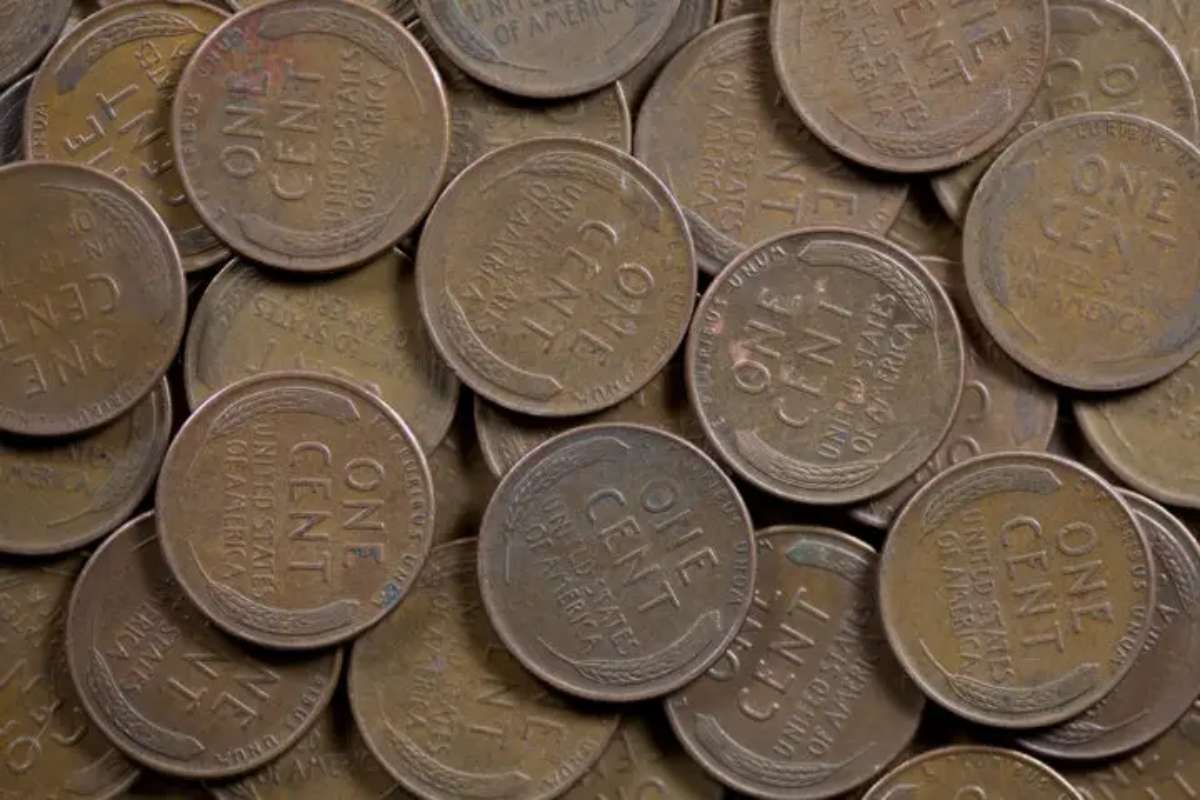
Your best bet in finding these old wheat pennies is to look through rolls of pennies from the bank.
Common wheat pennies like the ones I mentioned above are worth about 3 to 10 cents each.
Lincoln wheat cents made before 1934 are generally the scarcest.
The 7 rare wheat pennies that most people search for include:
- 1909-S penny ($85 and up)
- 1909-S VDB penny ($700 and up)
- 1914-D penny ($175 and up)
- 1922 plain cent ($500 and up)
- 1931-S penny ($85 and up)
- 1943 bronze cent ($100,000 and up)
- 1955 doubled die penny ($1,100 and up)
There are several other semi-key pennies that aren’t as rare as the 7 listed above — but they’re still worth much more than face value.
Here’s a list of 43 valuable pennies worth more than face value.
#2 – Pre-1983 Lincoln Memorial Copper Pennies
What makes these older Lincoln Memorial pennies worthy of keeping?
All regular-issue pennies made before 1983 (except for the 1943 steel penny) were made from a primarily copper composition.
Copper is a valuable metal — and that means pre-1983 pennies are worth slightly more than face value.
In fact, all 1959 to 1981 pennies are worth at least 3 cents, even the worn ones.
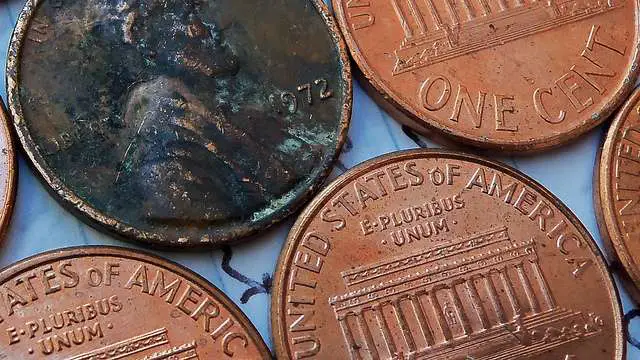
Most Lincoln pennies made after 1982 are made from zinc.
The single problem with keeping old Lincoln Memorial pennies is that you can’t legally melt them down for their copper value.
But it’s still good to know those old pennies are worth a bit more than face value anyway — which is why I look for them in loose change and keep any that I find.
More about the differences between copper and zinc pennies.
#3 – Buffalo Nickels
Yes, it’s still possible to find Buffalo nickels in spare change — even though they are now extremely rare in circulation.
In fact, the last time it was relatively easy to find Buffalo nickels with only a bit of dedicated searching was in the early 1980s.
However, I found a Buffalo nickel in my change just a few years ago.
While it was a dateless Buffalo nickel, it was still a worthy find, given how scarcely they appear now. By one estimate, Buffalo nickels turn up in circulation once every 25,000 nickels.
Dateless Buffalo nickels (the kind you’ll most likely find in pocket change) are worth around 50 cents to $1 each.
Any Buffalo nickels with dates are worth at least $1 to $2.
Here’s why you should save all U.S. nickels and never spend them again.
#4 – Old Jefferson Nickels
Jefferson nickels have been made since 1938.
While it may be hard for some people to immediately tell an old Jefferson nickel from a newer one, the color is usually an indicator.
Old Jefferson nickels are usually a much darker shade of gray than the newer ones.
Wartime nickels, which were made from 1942 through 1945, contain silver. These silver nickels are worth about $1.50 and up and can be found in circulation. (I know because I’ve found them.)
You can readily identify a Wartime nickel due to the large “P,” “D,” or “S” mintmark above the dome of Monticello on the reverse.
All Jefferson nickels made in the 1930s, 1940s, 1950s, and 1960s are increasingly scarce in circulation.
Nickels made before 1960 are worth an average of 10 to 50 cents each.
The 1939-D nickel and 1939-S nickel are worth about $5 to $10 each — and the 1950-D nickel sells for almost $20.
Here’s a list of the most valuable old nickels worth holding onto.
#5 – Silver Coins
Along with the silver wartime nickels mentioned above, there are other types of silver coins you can still find in circulation (as I can confirm through personal experience).
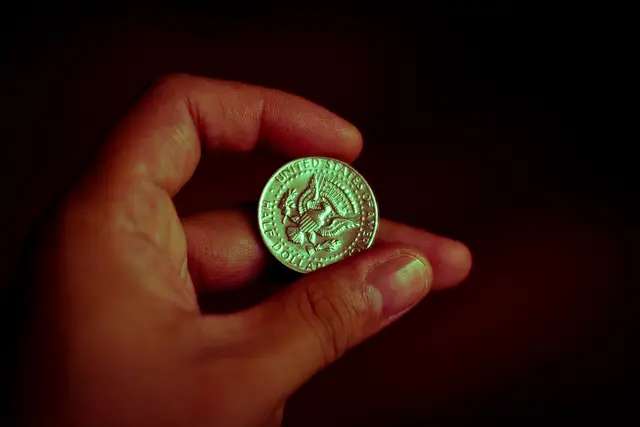
The most common are the silver Roosevelt dimes and silver Washington quarters.
Silver Roosevelt dimes (1964 or earlier) are worth around $1.50 to $3 each.
Silver Washington quarters (from 1932 to 1964) have a value of $3.75 to $5 each.
40% silver Kennedy half dollars (from 1965 to 1970) and 90% silver Kennedy halves (from 1964) are most commonly found in bank rolls instead of actual pocket change. These are worth about $2.50 and $7, respectively.
NOTE: The values listed above for silver coins assume a silver bullion price of $20 per ounce. Silver coin values will be different when bullion prices are markedly lower or higher.

